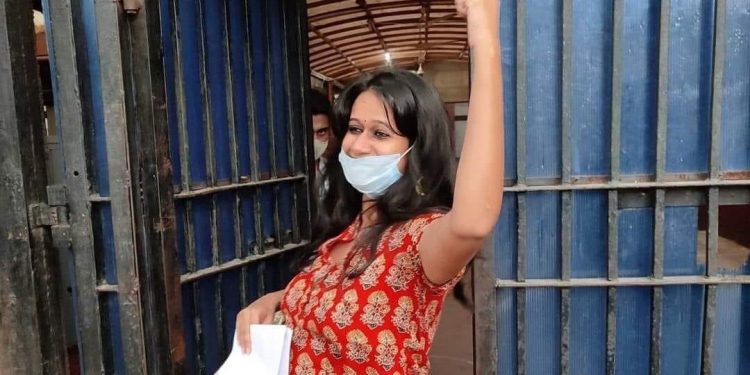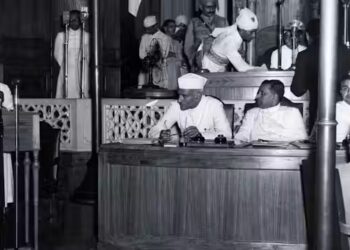“The civic space for the people of India is shrinking.”, says human rights activist Meha Khanduri
Recently, we saw pictures of student activist Natasha Narwal, with a raised fist, surrendering herself to the police in front of Delhi’s Tihar Jail, after the expiry of her interim bail.
Natasha was granted bail after more than one year in prison to perform the last rites of her father, who had succumbed to COVID earlier this month. Natasha’s return to Tihar Jail brought attention to how the ongoing pandemic has ravaged the Indian prison system as it has the rest of the country.
Indian government is accused of using COVID as a cover for jailing activists, many of them under anti-terror laws. Time and again, appeals to release political prisoners have fallen on deaf ears.
Another activist, Umar Khalid, tested positive for COVID. He has since recovered.
Watch:
Siddique Kappan—a journalist slapped with anti-terror charges after he was going to report on the gangrape in Uttar Pradesh in October last year—is fighting a life-or-death battle against Covid.
The list goes on.
In October last year, the UN High Commissioner for Human Rights appealed to the Government of India to safeguard the rights of human rights defenders and NGOs.
So, is the space for human rights activists and organisations being tightened by the use of sedition and anti-terror laws? Is the tolerance for dissent and protest shrinking?
NRI Affairs talks to Meha Khanduri a human rights activist based in India. Meha works with the Human Rights Defenders Alert (HRDA) a platform to take up the cause of persecuted human rights defenders in India. She has previously worked with organisations that include the UN, Amnesty International USA and the Human Rights Law Network.
Follow NRI Affairs on Facebook, Twitter and Youtube.











